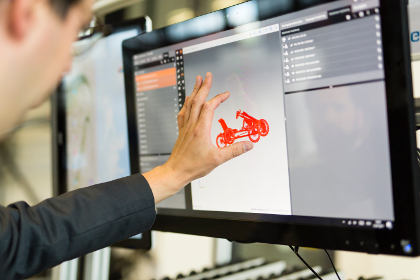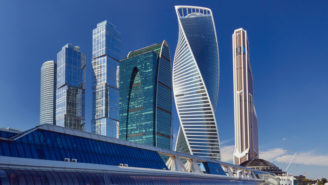Working in a Digital World
 © Demonstrationsfabrik Aachen
© Demonstrationsfabrik Aachen “Working Innovatively in a Digital World” was the annual focus topic for the German Centres for Research and Innovation (DWIH) in 2018. The topic reflects a development that is often described as the fourth industrial revolution. But is revolution perhaps too dramatic a word? No, as a glance at Germany and the DWIH host countries – the USA, Brazil, Russia, India and Japan – reveals: the changes being brought about by digitisation are affecting the way we work on every conceivable level.
Unique opportunities
Following historical innovations such as the steam engine, the conveyor belt and the use of electronics and information technology, it is now smart factories that ,are the dominant factor in Industry 4.0. However, it is by no means only industry that is affected, as digitisation likewise plays a key role in Germany’s research landscape. “One of the greatest challenges of our time is posed by the digital transformation of science, business and society”, says Professor Otmar D. Wiestler, who is the president of the Helmholtz Association, Germany’s largest research organisation.

"In nahezu allen Bereichen des Lebens eröffnet die Digitalisierung ungeahnte Möglichkeiten – innovative Formen von Arbeit und Zusammenleben beispielsweise, neuartige Plattformen für Handel und Austausch sowie einmalige Chancen in allen wissenschaftlichen Disziplinen."Prof. Dr. Otmar D. Wiestler, Präsident der Helmholtz-Gemeinschaft
By staging a large number of events, the DWIH have brought about an international dialogue that took account of local specificities while at the same time stressing the value of cross-border cooperation.





